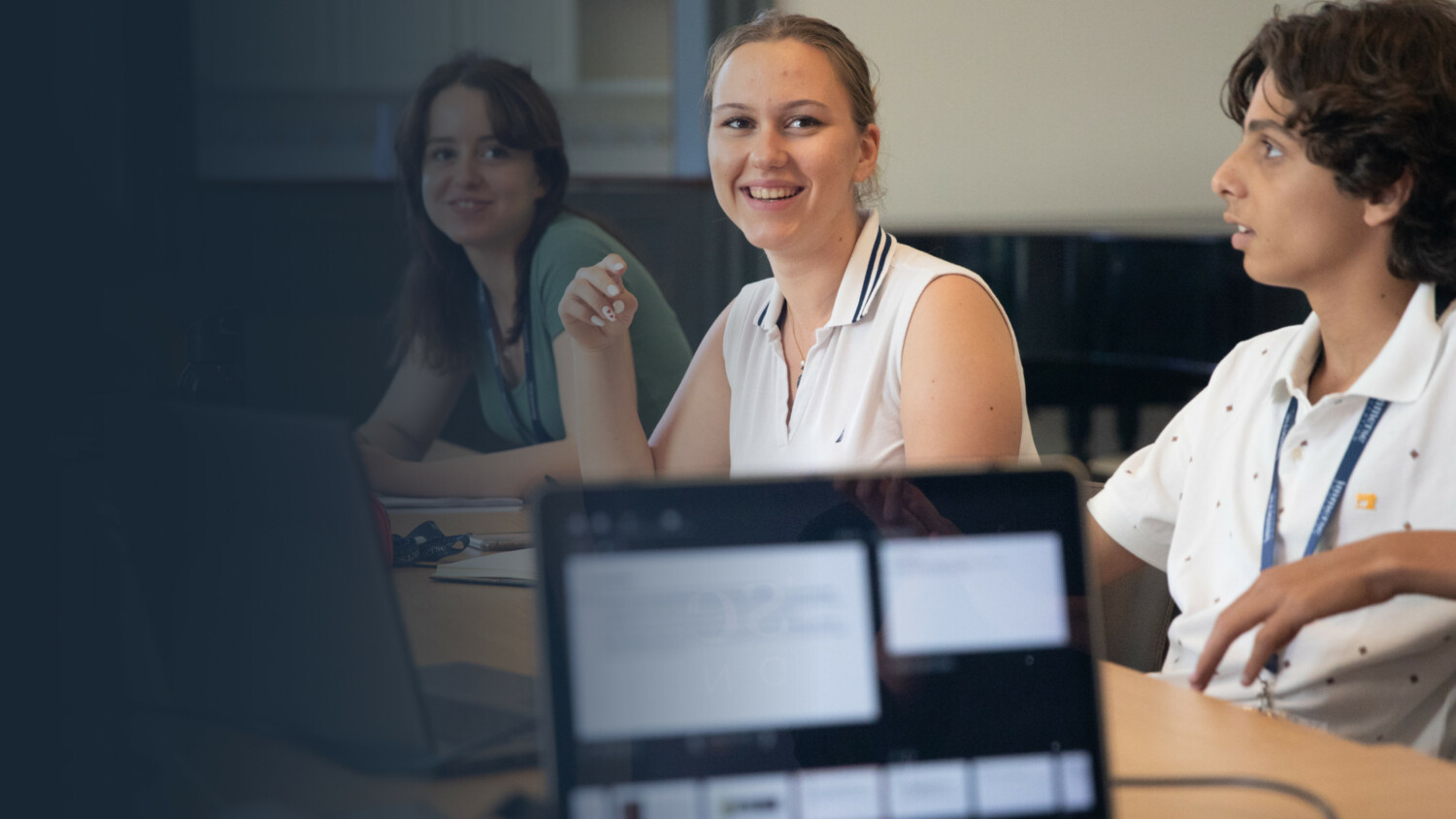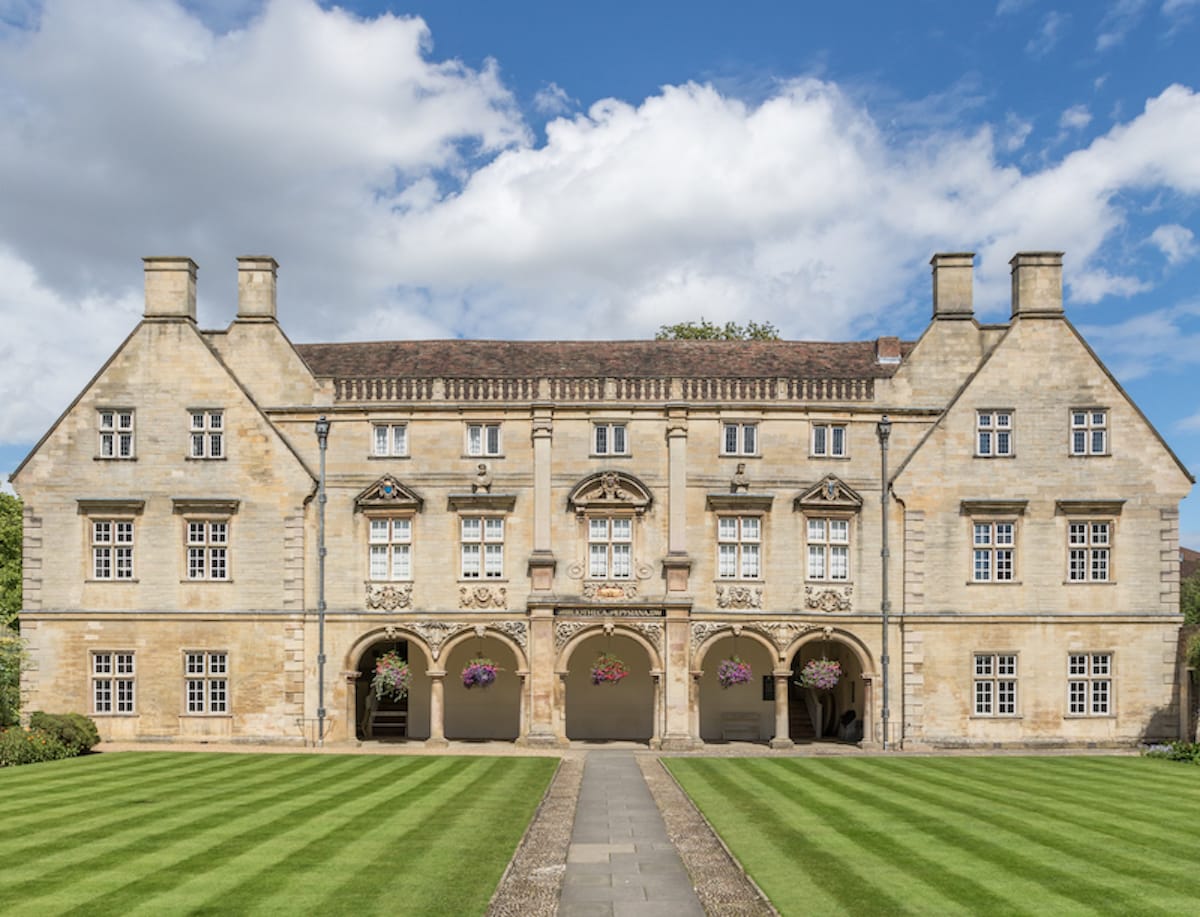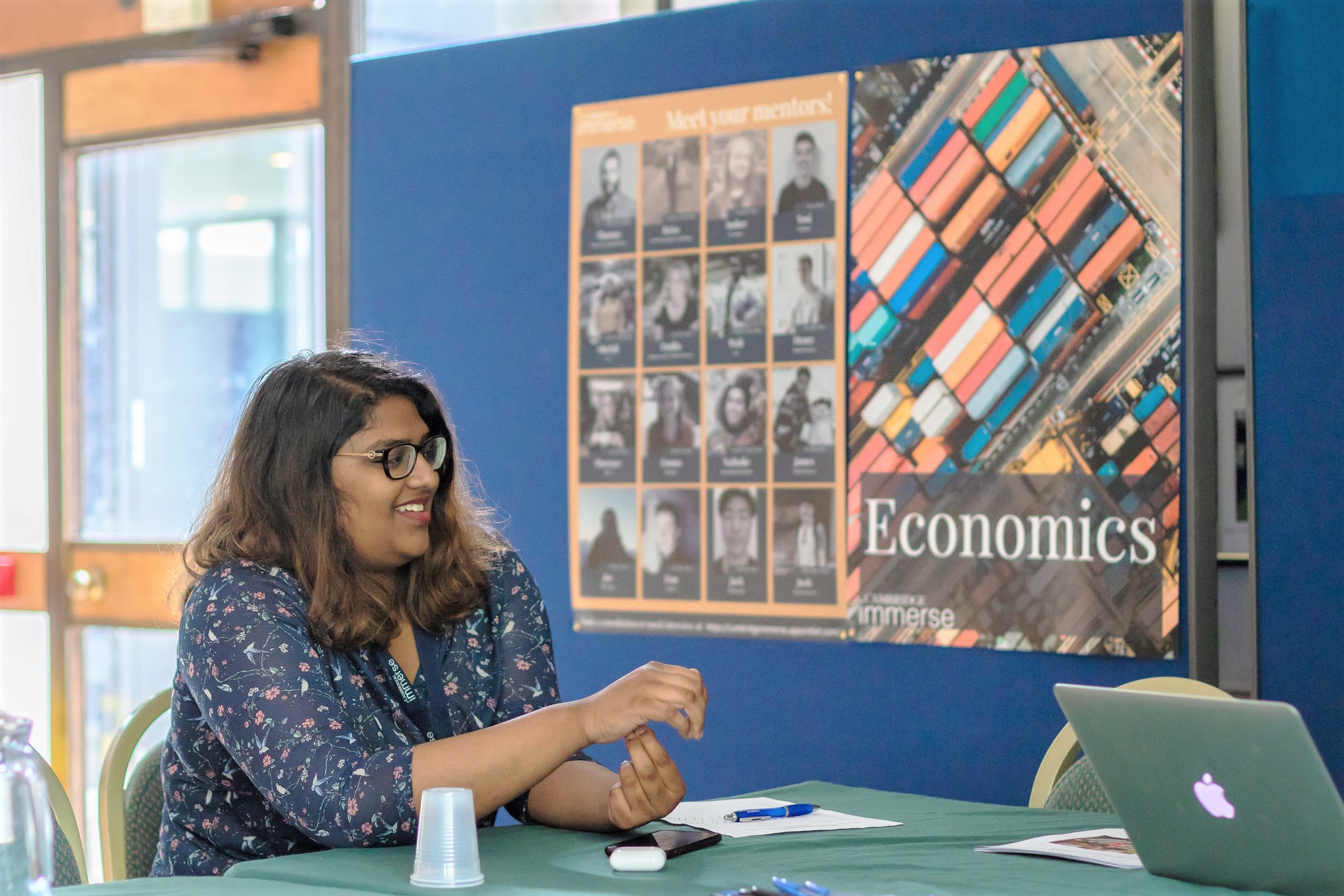Economics Summer School

Unparalleled academic programmes
Economics
Economics
I think that Immerse Education so far has been a great opportunity to learn both more about the subject I’ve really been interested in, and also to get an insight on what life is like here in the UK and learning more about the traditions which are really different to my day to day life.
My economics classes here at Immerse have been really engaging. The classes are relatively small, which gives the potential for students to say their thoughts and debate, encouraging open thinking and conversations with the rest of the class.
I’ve been looking at various interesting topics, such as game theory, the issue of scarcity and managing resources, and the decision making of firms, which are topics that I had never seen before.
I’ve really enjoyed having lessons with my tutor because he makes lessons really compelling and engaging. He uses a structure which I really personally like, which has a mixture of both practical questions and discussions, which gives a really balanced approach. He has this really interesting and engaging way of tackling the subject, which makes it really easy to follow and to understand.


Economics Summer School
If you have an interest in Economics but have not had a chance to study this at school yet, this summer school will provide an excellent introduction into the key theories of supply and demand, and how these underpin more advanced Economic models and influence current affairs.
You will be challenged to explore new ways of thinking, understand complex concepts, and apply their new knowledge as they solve challenging problems. What’s more, you’ll live and study in colleges of Cambridge University, and receive personalised guidance from expert tutors.
Frequently Asked Questions
What is economics?
Economics studies scarce resources’ production, distribution and consumption. The main problem? Human beings have unlimited wants, but we live in a world of limited goods. So how do you go about distributing resources?
There are two major categories of economics: macro and micro. Macroeconomics looks at the economy as a whole from a collective perspective. While microeconomics examines persons’ behaviour as consumers and producers from an individual’s perspective.
Why is it important to study economics?
Studying economics is important because it helps you understand how the market behaves. Every business needs to understand what factors affect prices, demand, and supply. Otherwise, they won’t know how to reach their target consumers. Resulting in low profit.
Studying economics also gives you an insight into your own spending habits. You’ll be surprised how a simple grocery trip can be full of economic principles at work. Awareness will help you make wise investments. And avoid pitfalls that get you into a cycle of debt.
In the UK, the Association of Graduate Careers Advisory Services’ Graduate Market Trends Survey 2021/2022 states that 59.3% of economics graduates work as Business, HR, and Finance Professionals. These include careers such as economists, data analysts, accountants, auditors, and statisticians.
The US Bureau of Labor Statistics projects a 13% employment growth from 2020 to 2030. That’s above-average growth compared to other occupations! Resulting in 1,600 job openings per year.
Immerse Education offers both online and residential courses for Economics. The residential course will be available in UK Cambridge.
You don’t need prior skills, experience, or learning to take the Economics course. But having an active interest in the subject is valuable. Your expert tutor will provide work for you to complete before your economics summer course starts.
For 13-15 yr. old students:
Introduction to Macroeconomics
What better way to introduce oneself to macroeconomics than by studying Adam Smith? Adam is one of the most famous economists of all time. In fact, he’s known as the Father of Modern Economics! In this session, you’ll learn through Adam Smith how macroeconomics affects the world. You’ll also understand normative and positive statements, the ‘invisible hand,’ and what ‘scarcity’ is.
Introduction to Microeconomics
Here you’ll dive into university-level economics. Topics include Production Possibilities Frontier, the different types of elasticities and comparative advantage, specialisation and gains from trade.
What are Markets?
What affects a market’s good or less good outcomes? There are five factors: market power, adverse selection, moral hazard, externalities and signalling.
Project Presentation
You’ve worked independently throughout the two-week course. Now it’s time for an exciting one-day mini-conference! You’ll present and discuss your relevant findings on your assigned Capstone Project with your peers and tutors.
There’s more! You’ll finish with a workshop and review session to learn about applying for economics, business and management degrees. And you’ll discover career options that will be available to you afterwards.
<br
For 16-18 yr. old students:
Introduction to Econometrics
What’s econometrics? Econometrics uses mathematical methods to describe economic systems. This module will teach you how multiple regressions allow researchers to control variables that would otherwise confound one’s results. And the common tools you can use to test hypotheses and estimate causal effects. You’ll learn methods including natural experiments, regression discontinuities, and instrumental variables.
Development Economics
Why do some countries have more advanced economic development than others? Discover the roles of poverty traps, education and nutrition within this context. You’ll also explore how economic interventions such as microfinance and cash transfers help reduce poverty.
Auction Theory
What happens in an auction? You can view it as a game where players bid without knowing their opponents’ bids. So Auction Theory investigates bidders’ behaviour in auction markets. You’ll use game theory in this class to analyse various auction formats. These include first and second-price auctions and all-pay auctions. After this tutorial, you’ll be able to predict how people bid. And you’ll put predictions to the test by live auctions in the classroom!
Project Presentation
You’ll attend a one-day mini-conference to end the course with a flourish! Where you’ll present and discuss your findings on your assigned Capstone Project. You’ll also experience a workshop and review session to learn more about applying for economics, and business and management degrees. And you’ll also discover the potential career options that will be available to you after.
Motivated students aged 13-18 are best suited for the Economics courses. Those looking to take economics, business, and management at the university will have a tremendous advantage over competitors.
Do you want to learn from expert tutors at the University of Cambridge? Then, you will love this course!






